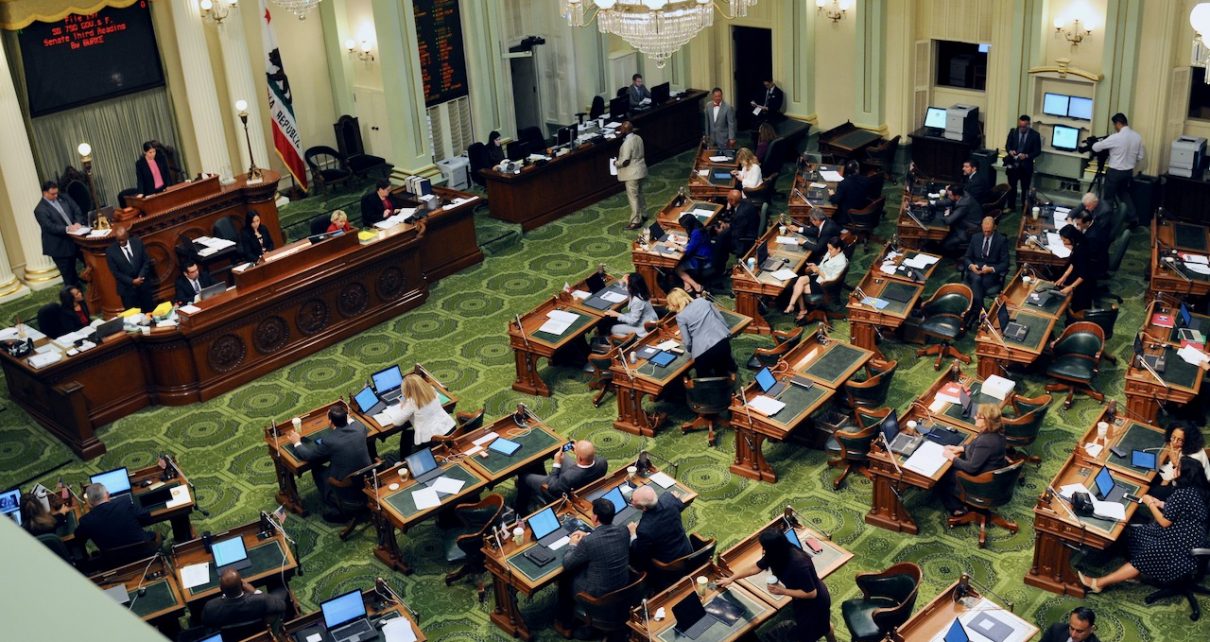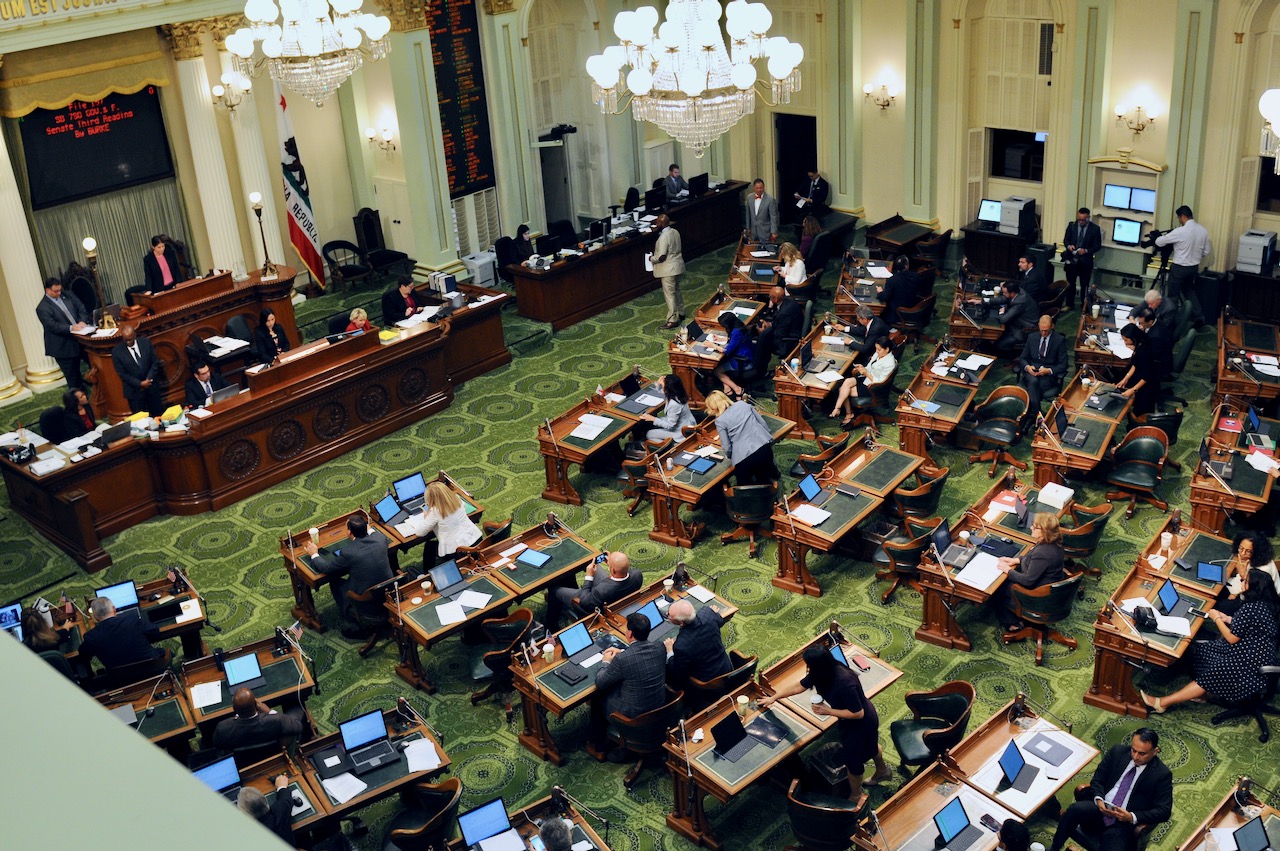
California State Assembly Chamber. (Photo: Kevin Sanders for California Globe)
Do California’s Legislative Rules Have Constitutional Protection?
In the hierarchy of laws, the state Constitution sits atop of all laws
By Chris Micheli, August 29, 2022 6:28 am
Some readers have asked whether the Assembly Rules, Senate Rules, and Joint Rules of the Assembly and Senate have equal standing as constitutional provisions because those rules flow from a specific grant of authority. Specifically, Article IV, Section 7(a) provides: “Each house shall choose its officers and adopt rules for its proceedings.”
As a result, both houses of the California Legislature have specific authority pursuant to the state Constitution to adopt rules to govern their proceedings. And, of course, the Legislature is a separate branch of state government and should have the ability to fully exercise its lawmaking power. As a result, it would be logical to assume that these three sets of Rules are on par with constitutional provisions.
In the California Constitution, Article IV, there are legislative process rules and procedures, such as the requirement that bills be read three times, that bills cannot be acted upon for 30 days after they are introduced, that bills must pass by at least a majority vote, etc.
In addition to this constitutional authority and constitutional procedural requirements, the California Government Code provides a number of statutes governing the “Legislative Department,” found in Division 2, Section 8902 to 10606. For example, there are state statutes concerning legislative organization, code of ethics, officers, enactment of statutes and adoption of resolutions, operation of statutes and resolutions, legislative publications, legislative powers, legislative rules, and aids to the Legislature.
In the hierarchy of laws, of course, the state Constitution sits atop of all laws, followed by statutes, and then regulations (adopted by executive branch agencies). But where do these three sets of Rules fall? These Rules cannot contravene the state constitution, nor can they contravene state statutes. In other words, these Rules must be consistent with or not contradict any legislative process rules set forth in the California Constitution or any statutes contained in the California Codes.
So, even though these three sets of Rules are adopted each 2-year Session of the Legislature, that does not mean that these Rules have equal standing with the state Constitution or can be inconsistent with state statutes.
- Port Infrastructure Financing in California - August 18, 2025
- A Quick Look at the Last Part of the California Legislative Session - August 17, 2025
- Procedural Provisions for Family Law Judicial Determinations - August 16, 2025







One thought on “Do California’s Legislative Rules Have Constitutional Protection?”